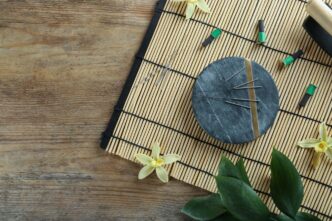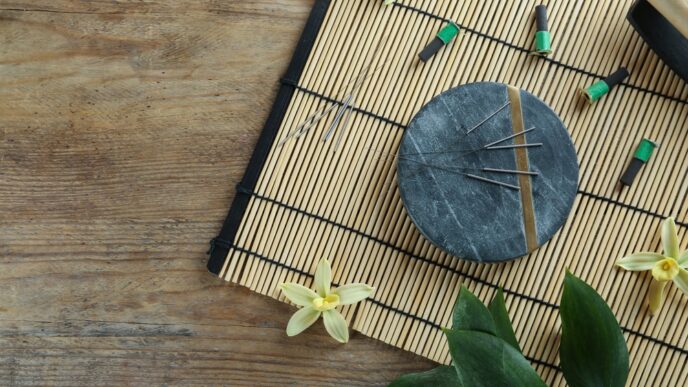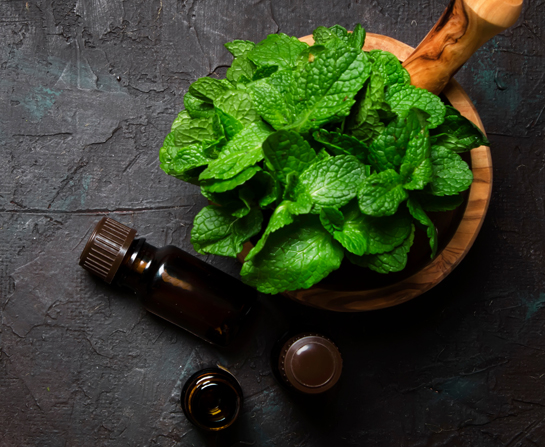Ever wondered why a traditional Chinese doctor always checks your tongue and pulse? The answer might surprise you! It’s not just habit—your tongue and pulse are the window into your body’s hidden imbalances.
WORDS DR ONG SIEW SIEW
 FEATURED EXPERT FEATURED EXPERTDR ONG SIEW SIEW Senior Lecturer School of Alternative and Complementary Medicine IMU University |
At a Western medicine clinic, you’ll have your blood pressure checked, felt the cold metal of a stethoscope, and maybe even winced at a needle or two.
When you visit a traditional Chinese medicine or TCM practitioner, however, they ask you to stick out your tongue. Then, they gently hold your wrist as if about to foretell your destiny.
WHAT’S GOING ON HERE?
- In TCM, your tongue and pulse both serve as powerful diagnostic tools.
- They reveal what’s really happening inside your body.
- These techniques allow TCM practitioners to detect imbalances long before symptoms escalate into more serious health concerns.
WHAT YOUR TONGUE SAYS ABOUT YOUR HEALTH
Think of your tongue as a live health report, updating in real-time. Every bump and groove along with the colour, coating, and contour provide insight into your internal well-being.
Colour
- A healthy tongue is rosy pink.
- A pale tongue may suggest fatigue, anemia, or a weakened immune system.
- A bright red tongue could indicate inflammation or excess heat in the body.
Coating
- A thin and even coating is normal.
- A thick or patchy coating may signal digestive issues, toxin buildup, or an underlying infection.
Size and Shape
- A swollen tongue can be an indication of fluid retention or poor metabolism.
- A thin or small tongue may suggest poor circulation, especially if accompanied by dizziness or cold extremities.
- A small or shrunken tongue can indicate nutrient deficiency.
Moisture Levels
- A dry tongue may indicate possible dehydration or yin deficiency.
- An overly wet tongue suggests excess dampness, often linked to sluggishness and bloating.
Lesions or Ulcers
- Painful sores or recurring ulcers may hint at deeper imbalances, including internal heat or underlying infections.
READING THE PULSE
- Unlike conventional Western medicine that focuses on taking pulse based on beats per minute, TCM practitioners assess pulse depth, rhythm, and strength to uncover hidden health secrets.
- Each wrist holds three pulse positions (cun, guan, and chi), corresponding to different organ systems.
- By evaluating these positions, TCM practitioners gain a comprehensive picture of your health.
Here’s what they’re looking for when they read your pulse.
Strength, Depth, and Rhythm
- A weak pulse may indicate qi or blood deficiency, leading to fatigue and poor digestion.
- A forceful pulse can suggest stress inflammation or excessive internal heat.
Pulse Rate
- A rapid pulse often signals heat or fever.
- A slow pulse may suggest sluggish blood circulation, often linked to cold conditions and fatigue.
Other Pulse Characteristics
- A choppy pulse can indicate stagnation, potentially leading to pain or discomfort.
- A slippery pulse is often linked to dampness or phlegm accumulation, associated with bloating or congestion.
- A fine pulse suggests blood deficiency, commonly linked to paleness, dizziness, or insomnia.
- Irregularities or absent pulses in specific positions may point to blockages or imbalances in certain meridians or organs.
WHY DO ALL THESE MATTER?
By analyzing these subtle diagnostic signs, a TCM practitioner can identify imbalances before they develop into major health concerns.
This allows for early intervention through holistic, personalized therapies such as:
- Herbal medicine to restore internal harmony
- Acupuncture to stimulate energy flow and balance.
- Dietary guidance to strengthen the body from within.
- Cupping or Tuina massage to release blockages and enhance circulation.
- Lifestyle adjustments tailored to support overall well-being.
A WINDOW INTO WELLNESS
While all this may seem unconventional from a Western perspective, the ancient wisdom of TCM diagnostics offers a window into your body’s inner workings, providing a proactive and integrative approach to health.
So, the next time a TCM practitioner asks you to stick out your tongue or checks your pulse, know that they are unlocking the story your body is silently telling—one that could lead to better balance, vitality, and longevity!
| This article is part of our series on traditional Chinese medicine. |













